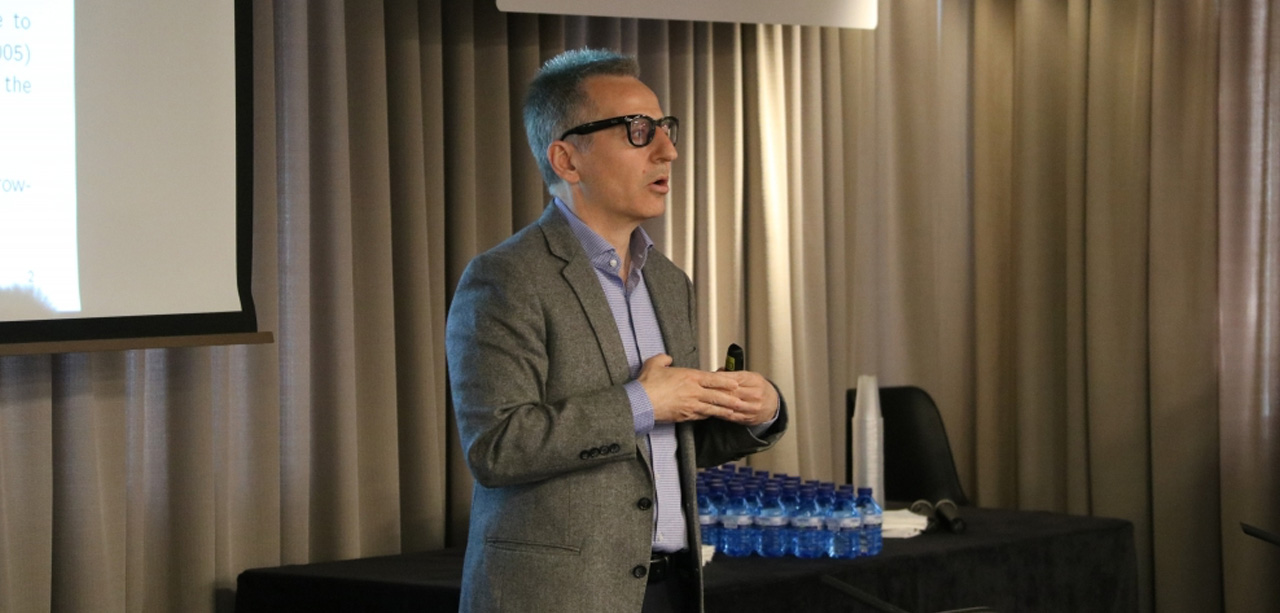7th NCID Research Workshop on Development Economics

17 | 05 | 2018
Fiscal policy, inequality and growth, migration's effect on GDP, Trump's commercial policy with China and stagnating salaries were only some of the topics debated yesterday at the round table which opened the 7th NCID Research Workshop.
The event, which took place at the Fundación Ramón Areces, gathered three leading economists: Martin Uribe, Economics Professor at Columbia University, Pablo Guerrón-Quintana, Economics Professor at Boston College and Jonathan D. Ostry, Deputy Research Director at the International Monetary Fund. About 90 people enjoyed the discussion on current economic topics on the agenda, which was moderated by Wall Street Journal's Spain correspondent Jeannette Neumann.
The event started with a presentation by each speaker. Guerrón-Quintana focused his presentation on migration and international commerce. Boston College's professor analyzed incentives and disicentives for migration inside a same country. "If we eliminate migration between cities and states in the U.S. the GDP would reduce by 15%", he said. Uribe followed with a short presentation on fiscal policy. Columbia University's Professor explained that since the start of the economic recession in 2008 the European Central Bank's interest rate has stood at zero. He argued that this situation is causing a risk of deflation on the near future: "It is the moment for the European Union to consider if to normalize its interest rate". Uirbe suggested a gradual increase to up to 2%, and although he agreed with bankers which argue that on the short run this move could cause a recession, he assured that on the long term it has a positive impact.
The last speaker to present, Jonathan D. Ostry, went on to talk about growth and distribution in macroeconomic policies. Ostry said that there is a direct cost to rising inequality, as growth in a country tends to be worse and less durable. "Fragile growth and inequality are two sides of the same coin. Achieving growth is one thing, but sustainable growth is the key, and that's not possible without distribution", he affirmed.
After those Neumann started the round of questions asking Uribe about when will salaries start rising in Europe. The economist said that during the period 2000-2008 salaries rose in Spain by 60%, but when the economic recession came they didn't go down, meaning unemployment hit hard the country. Uribe asserted that he can't affirm when, but he explained that with the current fiscal policy of zero interest rate there is a threat of deflation, which would decrease growth and potentially salaries.
The discussion finished with a question about the sutability of Trump’s approach to a possible commercial war. Uribe expressed his concern with U.S. policies, which foster retaliation. "Americans have reasons to be angry. China constantly breaks international regulation on intellectual property, but setting tariffs on steel as a response to that is as if you have a headache and take medicine for stomach ache". Guerrón-Quintana added that since Trump landed in the White House he has felt an increasing doubt in the economic sector, which generates insecurity. Ostry finished off saying that open free trade is positive and that is something universal which shouldn’t be reversed.
